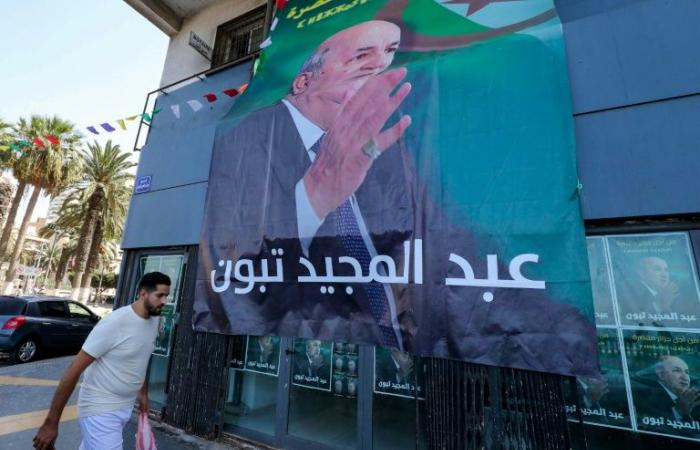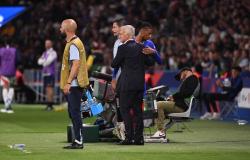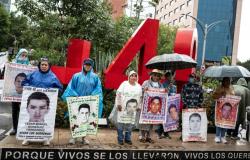More than 24 million Algerians are being called to the polls on Saturday for a presidential election, which should see the unsurprising re-election of President Abdelmadjid Tebboune for a second term and whose main issue lies in the turnout rate.
Polling stations open from 07:00 to 18:00 GMT. The first results could be in on Saturday evening, with an official announcement expected no later than Sunday.
“The winner is known in advance,” given “the quality,” the “unusually small number” of competitors, and the “conditions in which the electoral campaign took place, which is nothing more than a farce,” said political science expert Mohamed Hennad on Facebook.
Facing the outgoing president are two little-known candidates: Abdelaali Hassani, a 57-year-old public works engineer and head of the Movement of Society for Peace (MSP), the main Islamist party, and Youcef Aouchiche, 41, a former journalist and senator, head of the Front of Socialist Forces (FFS), the oldest opposition party, based in Kabylie (east).
The re-election of Mr Tebboune, 78, is all the more certain as four leading parties support his candidacy, notably the National Liberation Front (FLN, former single party) and the Islamist movement El Bina.
“The president is keen on a high turnout. That’s the first issue. He hasn’t forgotten that he was elected in 2019 with a low turnout. He wants to be a normal president, not a poorly elected president,” Hasni Abidi of the Cermam Study Center in Geneva told AFP.
– “The second economy in Africa” -
Abstention had broken records (60%) during the election won by Mr. Tebboune in December 2019 with 58% of the vote, while massive demonstrations for a change in the system in force since independence (1962) were in full swing.
This protest movement, the Hirak, had just, in April, driven from power, with the powerful army, Mr. Tebboune’s predecessor, Abdelaziz Bouteflika, after 20 years of reign.
Faced with the spectre of low turnout, Mr Tebboune and his opponents have been crisscrossing the country since mid-August, but the campaign, unusually held in the middle of a summer heatwave, has generated little enthusiasm.
Algerians living abroad, 865,490 voters according to the Anie electoral authority, have been voting since Monday.
All three candidates focused their speeches on socio-economic issues, promising to improve purchasing power and to revive the economy so that it would be less dependent on hydrocarbons (95% of foreign exchange earnings).
In foreign policy, there is a consensus on the Palestinian and Sahrawi causes, defended by all the contenders.
Aided by the natural gas windfall, Mr. Tebboune promised new salary and pension increases, investments, two million new homes and 450,000 new jobs, to make Algeria “the second economy in Africa”, behind South Africa.
– “Zero tolerance” –
At the end of the campaign on Tuesday, the man whom social networks affectionately nickname “aammi Tebboune” (Uncle Tebboune) pledged to give young people – more than half of the 45 million inhabitants and a third of the voters – the “place that suits them”.
Mr Tebboune says his first five-year term was hampered by Covid-19 and the corruption of his predecessor, of whom he was a minister several times.
His rivals promise more freedoms. The FFS candidate commits to “freeing prisoners of conscience through an amnesty and to re-examining unjust laws” on terrorism or the media. The MSP candidate advocates “respect for freedoms reduced to nothing”.
According to Mr. Abidi, five years after the Hirak, stifled by Covid-related bans on gatherings and the arrest of its leading figures, Mr. Tebboune’s record suffers from “a deficit of democracy” which could constitute a handicap during a new mandate.
The NGO Amnesty International accused the government this week of continuing to “stifle civic space by maintaining a severe repression of human rights”, with “new arbitrary arrests” and “a zero tolerance approach to dissenting opinions”.
According to the National Committee for the Liberation of Prisoners (CNLD, Algerian), dozens of people linked to the Hirak or to the defense of freedoms are still imprisoned or prosecuted.
abh/fka/tp






